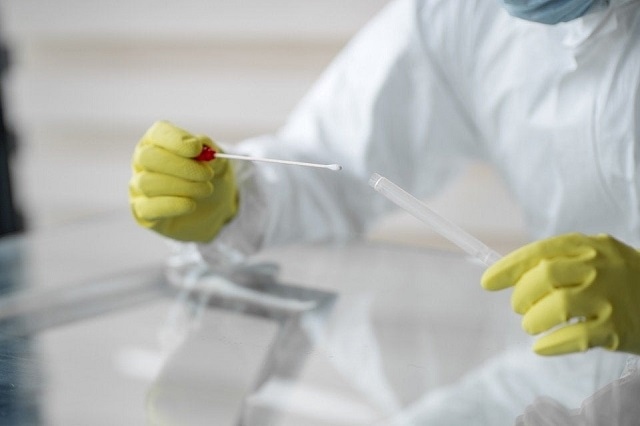Long-covid mental health and psychological support service to launch
Date published: 22 July 2021

Photo: Gov.uk
Estimated 34% of people diagnosed with Covid-19 go on to have a neurological or psychiatric diagnosis within the following six months
Pennine Care NHS Foundation Trust has received £593,000 in funding from Greater Manchester Health and Social Care Partnership to establish a new long-covid mental health and psychological support service.
The new service, expected to launch autumn 2021, will be based at Pennine Care’s existing Psychological Medicine Service in Oldham; and will co-ordinate the care and support for people with mental health and psychological difficulties caused by Covid-19 in Oldham, Bury, Rochdale, Stockport and Tameside and Glossop.
Anna Dalton, long term conditions strategic and operational lead at Pennine Care, said: “Our innovative Psychological Medicine Service in Oldham already supports people with complex physical health problems and long-term health conditions who may also have mental and emotional difficulties.
“Since autumn last year, we have helped more than 50 people in the borough who have had on-going psychological difficulties and complications due to Covid-19. This new dedicated service means we can help people across all our five boroughs in Greater Manchester receive the mental health help and support they need.”
Recent research from The Lancet medical journal shows that an estimated 34% of people diagnosed with Covid-19, go on to have a neurological or psychiatric diagnosis within the following six months.
Pennine Care’s Dr Sarah Burlinson, consultant liaison psychiatrist, explains how Covid-19 can affect people: “For a significant number of people the impact of Covid-19 can be long lasting; especially if they have developed new physical health problems as a result.
“Some people may have been ventilated and remained in hospital for long periods; some will have experienced delirium during their acute illness; whilst others speak about the loss of family members who have caught Covid-19 at the same time as them and have not survived.
“These experiences are upsetting and potentially traumatising; in some cases the experience may trigger other mental health difficulties including anxiety and mood disorders, post-traumatic stress disorder and cognitive difficulties.”
Dr Burlinson adds: “People - those who have been in hospital and those who have had less severe infections - describe a range of other symptoms which include fatigue, brain fog and a range of physical symptoms, which are not currently fully understood at the moment.
“Recovery from Covid-19, especially given all the uncertainty, can be difficult, and providing a biopsychosocial approach to assessment, recovery and rehabilitation with our health and social care colleagues will be key.”
Do you have a story for us?
Let us know by emailing news@rochdaleonline.co.uk
All contact will be treated in confidence.
Most Viewed News Stories
- 1Drugs and cash seized during morning raids at suspected stash houses
- 2Ogden family announces intention to invest £2m in Rochdale AFC
- 3Middleton school hails another outstanding inspection result
- 4Man convicted after police car filmed driving dangerously in Kirkholt
- 5Former councillor and hospital campaigner Jean Ashworth has died
To contact the Rochdale Online news desk, email news@rochdaleonline.co.uk or visit our news submission page.
To get the latest news on your desktop or mobile, follow Rochdale Online on Twitter and Facebook.


